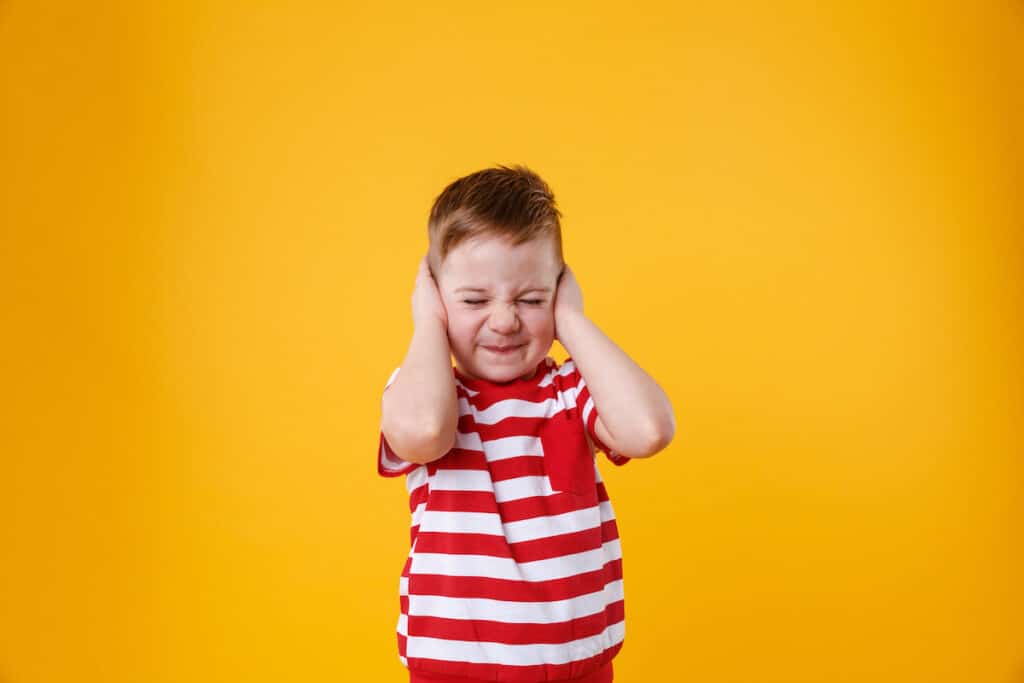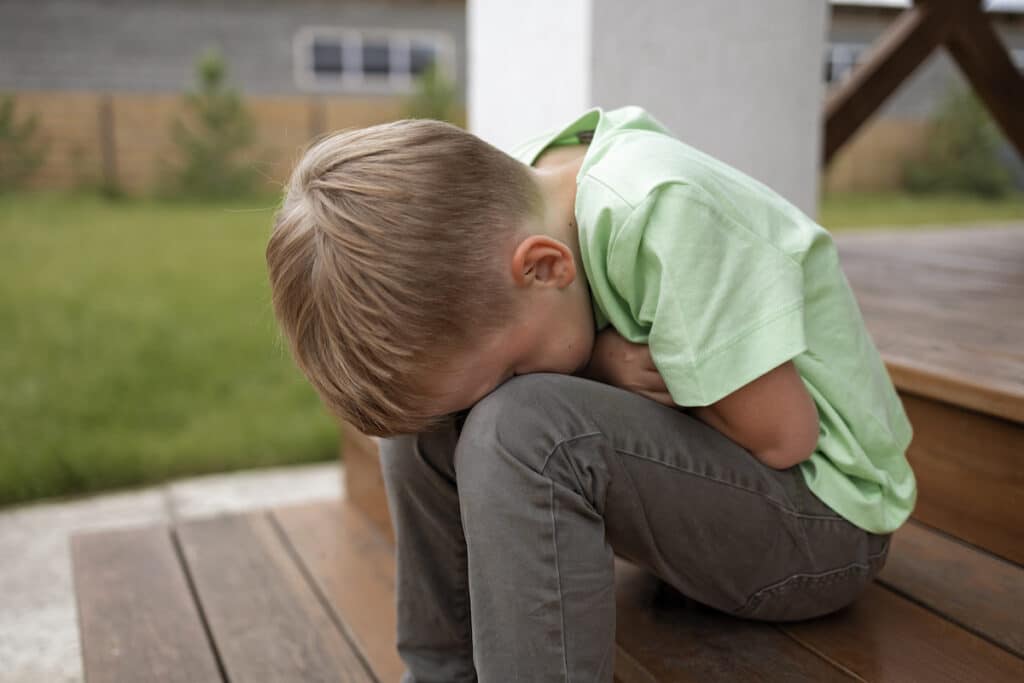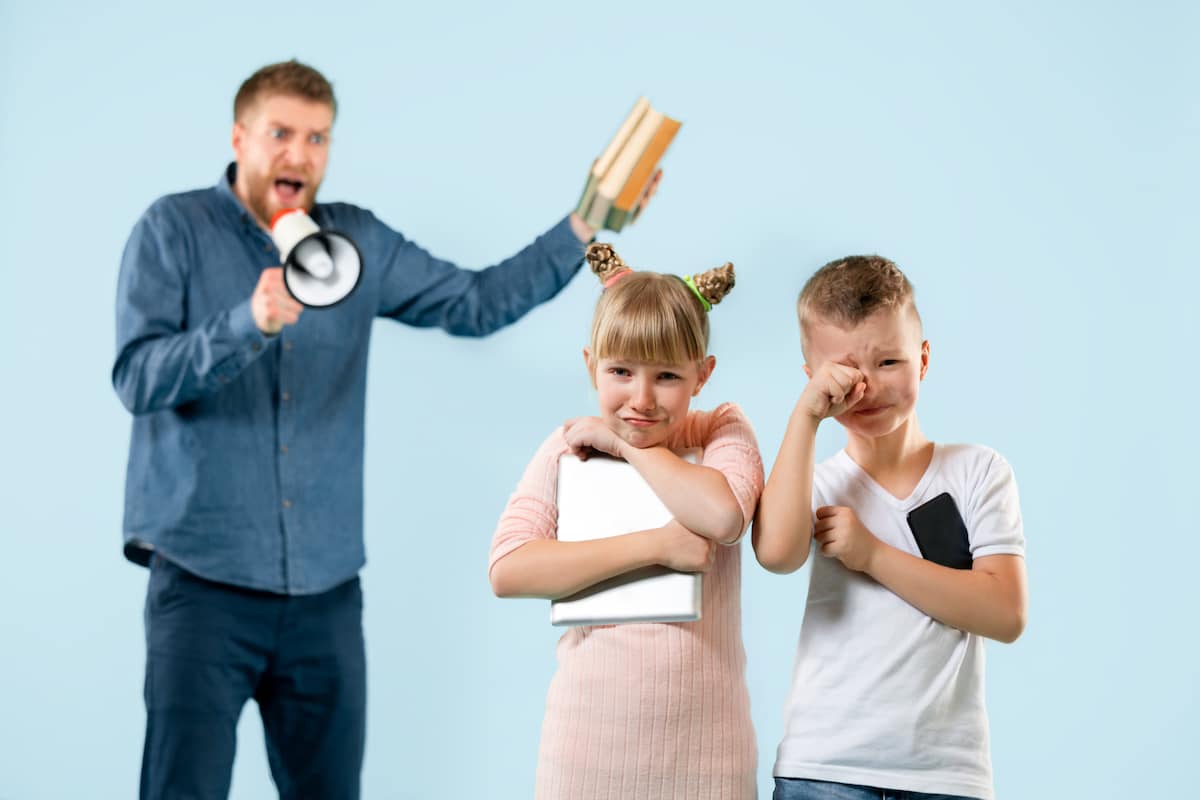Yelling at kids is often used by parents to get children’s attention and determine them to improve their behavior. However, responding to emotional outbursts with yelling can reinforce negative behaviors and teach children that yelling is an acceptable means of communication. This proves to be ineffective in the long run and can hinder healthy emotional development.
Children who do not learn healthy emotional expression from a calm parent or caregiver may struggle with anger issues as adults. Parents should teach their children healthy and productive means of communication.
When a parent is yelling at child, the reasoning more often than not hints at feeling overwhelmed, frustrated or at the inability to set limits. However, it’s important to find ways to remain calm and respond effectively to children’s behavior.
By practicing patient parenting and controlling your own emotions, you can discover effective communication strategies like setting clear expectations and consequences. These strategies can help create a positive and nurturing environment in your home and strengthen the bond with your child.
The Science Behind Parent Yelling
The Fine Line Between a Parent Yelling at Child and a Verbal Abuser
Parents frequently yell at their children because they feel empowered to do so. Parents assume that yelling is not harmful since everyone does it and because they neglect the psychological effects it has on a child.
Sometimes when you scream, start to call your child names, or become aggressive, the negative effects of yelling at your child come into play. Most likely you resort to this kind of behavior to make yourself heard and because a child’s behavior tends to change immediately.
👉 Want to better understand why your kids don’t always meet your expectations? Find out what motivates kids to not listen to their parents and how to cultivate attentive and responsive communication with your children.
The reason why you should stop yelling at your child is that its main effect is to devalue the child and affect the relationship. Children are often frightened and may experience remorse and regrets. Parent yelling at child does not even work in the long term and creates tension throughout the family.
While shouting may be necessary under certain situations, such as when a child crosses the street hastily without looking or moves too far away from the parent, engaging in verbal abuse as a daily routine can be just as harmful as physical abuse.
Science Says Yelling Is No Different Than Hitting
The natural reaction of many parents after an exhausting day can be yelling instead of speaking calmly to their children. Shouting, like spanking, only guarantees a short-term reaction of the child out of fear.
Although children may have an immediate response to yelling, it is not an effective way to discipline them. As the frequency and intensity of a parent yelling at child are increasing in an attempt to be heard, a vicious cycle ensues. This cycle ultimately takes a toll on the child’s emotional well-being, as they are the ones most affected by the pattern of negative communication.
Here are some examples of the worst psychological and emotional damage that a parent yelling at child can cause in the long run:
- Low self-esteem;
- Anxiety and depression;
- Behavioral problems;
- Trust issues;
- Post-traumatic stress disorder.
Reasons Why Yelling at Kids Doesn’t Actually Work
Children Cannot Learn In fight or Flight Mode
When the body’s fight or flight response is activated in response to a perceived harmful event, the brain reroutes blood from the brain to the muscles. This results in decreased logic, reasoning, and problem-solving abilities.
Children who are regularly yelled at may develop an excessive response to stress, leading to a pattern of fight or flight. This can impact their ability to learn, interact with others, and process information.
It’s essential for parents and caregivers to adopt a positive and constructive parenting style. Choose an approach that can help your children regulate their emotions effectively, in order to minimize the need for the fight or flight response and promote healthy development.
👉The first step to becoming a better parent is to understand what type of parent you are. Gain valuable insights into the various parenting styles, from authoritative to permissive, and understand how each approach can shape your child’s behavior, self-esteem, and overall well-being. Don’t miss out on this opportunity to become aware of your parenting toolkit!
One of the Psychological Effects of Yelling at a Child? They Become Fearful

A parent who is yelling and scolding a child constantly can instill fear in children, leading them to doubt their abilities and self-worth. This may lead to a negative self-image, low self-esteem, and a lack of confidence that can persist into adulthood.
Over time, one of the possible effects of parent yelling at child could be an increase in anxiety levels. This can make children doubt themselves and struggle with confidence and anxiety.
Children who are often scolded or yelled at may also struggle with academic performance and social interactions. This makes it critical for parents and caregivers to adopt positive and constructive discipline techniques that help build a healthy and supportive relationship with their children.
Yelling Teaches Your Child That It’s Okay To Yell
When parents rely on yelling as their go-to method of communication, they risk sending their children the message that this bad behavior is not only acceptable but effective. Unfortunately, this can result in negative outcomes for the children’s development, as they may grow up without a clear understanding of what healthy communication entails.
Kids who learn that yelling is an acceptable way to interact with others may have difficulty mastering skills like active listening and empathy. Furthermore, they may struggle to form positive and supportive relationships, as they may resort to yelling or aggression when they feel out of control or challenged.
It’s important for parents to recognize that small changes to their communication style can yield big results in terms of their child’s well-being and development.
Yelling is Not Effective Communication
Frequent yelling can have significant long-term effects on a child’s perception of communication and conflict resolution. When children are frequently yelled at, they may learn that yelling is an acceptable way to get people’s attention or to communicate their needs. This causes them to develop yelling as a habitual response.
Such an approach to communication is not effective. It can result in a vicious cycle of yelling, where others may respond by talking back, which further escalates the conflict. When a parent is yelling at child, constructive problem-solving skills are out of the question. This parenting method may have long-term consequences for a child’s social and emotional development.
👉There is more to kids talking back than meets the eye! Imagine a world where your child communicates with respect and cooperation. It’s possible, and our article on “How To End Your Child’s Backtalk” will show you how.
To break this circle, parents must prioritize positive communication techniques that promote healthy conflict resolution. They should help children learn to express themselves in a calm and respectful manner.
Harmful Effects of Parent Yelling at Child
The Effects Of Yelling on a Child’s Brain Development
Children’s brains are not fully developed. That’s why they are vulnerable to stressors that can impact their emotional processing.
Frequent exposure to yelling and harsh parenting can cause the amygdala, the emotional processing center of the brain, to become overactive. This heightened activity can increase sensitivity to threatening situations, leading to a heightened “fight-or-flight” response. Consequently, children may become more reactive to stressors, leading to negative emotional responses like anxiety, fear, and anger.
Repetitive yelling can also impact the hippocampus, which is responsible for memory and learning. Research indicates that chronic stress caused by such parenting techniques can result in a smaller hippocampus. This can lead to memory deficits and difficulties with learning and retaining information.
Harsh verbal discipline also leaves a mark on the prefrontal cortex, which regulates emotions and decision-making. Chronic exposure to stress caused by harsh parenting can reduce the efficiency of the prefrontal cortex, resulting in decreased emotional regulation and decision-making abilities.
All these changes in brain structure can have long-lasting effects on a child’s social adjustment, even if not immediately visible.
The Psychological Effects of Yelling at Your Child
Repetitive shouting can have long-term adverse effects on a child’s mental health and behavior. While yelling may temporarily stop a child from acting out, it can contribute to future problems and aggression.
As children grow and explore new experiences, they may become desensitized to yelling. Thus, they may develop an inclination toward engaging in risky or unsafe behaviors.
Children who are frequently yelled at are more likely to develop depression and other mental health issues that may persist well into adulthood, due to their low self-worth and feelings of inadequacy. This highlights the importance of positive and constructive communication techniques in child-rearing. They can help promote healthy self-image and self-worth.
Ming-Te Wang, a researcher at the University of Pittsburgh, conducted a study on the links between parents’ habit of yelling and adolescents’ behavior. What he found is that the use of harsh verbal discipline by both parents when their child is 13 years old can lead to an increase in conduct problems and depressive symptoms during adolescence.
This type of discipline can significantly impact the emotional and behavioral development of adolescents. Whenever a parent is yelling at child, psychological force is activated in order to induce emotional pain or discomfort with the aim of correcting or controlling misbehavior.
The Negative Impact on the Parent-Child Relationship

When parents are yelling at kids, it can have a significant effect on their relationship. Yelling can spark feelings of fear, anxiety, and mistrust, eroding the foundation of the parent-child bond. This makes it challenging for the child to form a secure attachment.
Additionally, frequent exposure to yelling can lead to breakdowns in communication and trust. It becomes difficult for parents to guide their child’s behavior effectively under these circumstances.
Thus, children may become defensive or resentful, further complicating the parent-child relationship. Moreover, parents always yelling at kids may be more likely to use other negative forms of reinforcement, such as punishment or threats, which can damage the relationship and create an adversarial dynamic between parent and child.
Things to Remember Before Yelling at a Child
Yelling can have negative effects on both the parent-child relationship and a child’s overall well-being. Good parents recognize that yelling should not be their first resort when dealing with difficult situations.
Instead, they should take a break, identify their triggers, and utilize positive reinforcement and clear communication techniques. It’s important to keep in mind that it may not be possible to stop yelling immediately.
However, with practice, parents can improve their communication skills and strengthen their bond with their child. One useful tool for improving the parent-child relationship is to seek out parenting tips:
- recognize your personal triggers;
- don’t shout to grab your kid attention;
- don’t use harsh words;
- don’t lecture your kid after yelling.
By following these strategies, parents can cultivate a healthier and more positive relationship with their children. By refraining from the impulse of yelling at kids, parents can start building a stronger family unit.
Conclusion
While most parents are aware of the negative effects of cursing at a child, many fail to recognize the equally harmful impact of screaming at their child. Shouting is not an effective means of discipline or communication with children.
A parent yelling at child on a regular basis can lead to negative long-term effects on their mental health, including issues with self-regulation, increased tantrums, and difficulty paying attention. Parents who resort to yelling may inadvertently teach their children that this is an acceptable form of communication, leading to further problems down the road.
Instead, parents should prioritize positive and constructive communication techniques, such as active listening, empathy, and setting clear boundaries. These strategies can help build a healthier parent-child relationship, promote positive self-regulation skills, and reduce tantrums and attention-seeking behavior.
It’s important for parents to recognize that parenting is a difficult and often stressful job. Nonetheless, taking the time to develop effective communication skills and practicing patience and understanding can go a long way in promoting their child’s overall well-being. By prioritizing healthy communication and positive discipline techniques, parents will no longer find yelling at kids necessary. Instead, they can help their children develop into happy, healthy, and well-adjusted adults.
Do you want to enhance your parenting skills and foster a closer relationship with your child? Sign up for our upcoming masterclass on “How to Stop Yelling at Kids”, where you can gain practical tips and techniques from experts on communicating with your child in a way that cultivates trust, respect, and positive parenting practices. Act fast before it’s too late! Secure your spot by registering today and start taking positive steps towards a more rewarding and fulfilling family life.
References:
Markham, L. (2012). Peaceful Parent, Happy Kids: How to Stop Yelling and Start Connecting. TarcherPerigee .
Milner, J. S., Wagner, M. F., Crouch, J. L., & McCarthy, R. J. (2019). Child-related attributions of hostile intent and harsh discipline: Moderating effects of anger. Aggressive behavior, 45(6), 610–621. https://doi.org/10.1002/ab.21855
Salzwedel, A. P., Stephens, R. L., Goldman, B. D., Lin, W., Gilmore, J. H., & Gao, W. (2019). Development of Amygdala Functional Connectivity During Infancy and Its Relationship With 4-Year Behavioral Outcomes. Biological psychiatry. Cognitive neuroscience and neuroimaging, 4(1), 62–71. https://doi.org/10.1016/j.bpsc.2018.08.010 Wang, M. T., & Kenny, S. (2014).
Longitudinal links between fathers’ and mothers’ harsh verbal discipline and adolescents’ conduct problems and depressive symptoms. Child development, 85(3), 908–923. https://doi.org/10.1111/cdev.12143










